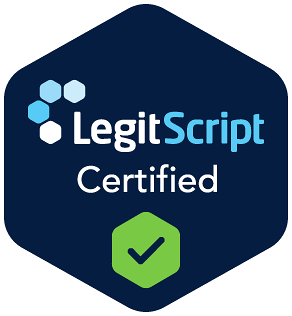
ADHD and addiction often occur together in teens, creating a complex set of challenges for families, educators, and caregivers. Impulsivity, emotional regulation issues, and difficulty focusing can make adolescents with ADHD more vulnerable to substance use. Without proper intervention, these co-occurring disorders can disrupt academics, strain relationships, and impact emotional well-being—making early, integrated treatment essential.
At the Massachusetts Center for Adolescent Wellness, we offer evidence-based therapies to help teens manage ADHD and substance use challenges with confidence and clarity. Our services include ADHD Treatment for Teens, relapse prevention strategies, and skill-building exercises that foster emotional growth and behavioral stability. Each treatment plan is personalized to address the root causes of both conditions while supporting long-term recovery. These services come together in our comprehensive Dual Diagnosis Program, which treats ADHD and substance use disorders simultaneously for lasting impact.
Our comprehensive approach includes teen addiction treatment, family therapy, and academic support to help teens regain confidence and restore balance. We focus on empowering adolescents to achieve long-term recovery, improved focus, and stronger connections with their support systems.
The Link Between ADHD and Teen Substance Use
ADHD and addiction often go hand-in-hand, especially in adolescents. Teens with ADHD may turn to drugs or alcohol to manage symptoms like impulsivity, inattention, and restlessness. This self-medicating behavior can lead to substance dependence and worsen ADHD symptoms over time. Understanding this connection is crucial for early prevention.
Research shows that teen ADHD and substance use often start early, with higher rates of experimentation and risk-taking compared to peers. Academic challenges, social difficulties, and low self-esteem can further increase vulnerability. Addressing both ADHD and substance use through dual diagnosis treatment for teens improves outcomes and reduces relapse risk.
Parents, educators, and providers should watch for warning signs and seek integrated care for adolescent addiction and ADHD. Programs focusing on ADHD treatment and addiction recovery help teens build healthier coping strategies and restore balance in their lives.
| ADHD Symptom | Impact on Substance Use |
| Impulsivity | Risk-taking, experimentation |
| Inattention | Poor judgment, unsafe choices |
| Restlessness | Seeking stimulation via substances |
Signs Your Teen May Be Struggling with Both ADHD and Addiction

When ADHD and substance use occur together, the signs can be difficult to recognize. Many symptoms overlap, making it challenging for parents, teachers, and caregivers to distinguish between typical teen behavior and a deeper problem. Early detection is essential for preventing long-term consequences.
Common signs your teen may be facing both ADHD and addiction include:
- Increased impulsivity beyond typical ADHD patterns
- Declining grades and lack of interest in schoolwork
- Frequent mood swings or unexplained irritability
- Changes in sleep patterns or appetite
- Withdrawal from family and friends
- Secretive behavior or unexplained absences
- Possession of substances or paraphernalia
- Neglect of personal hygiene or appearance
If you notice several of these behaviors, it may be time to seek help. Integrated treatment for co-occurring disorders in teens addresses both ADHD symptoms and substance use, helping your teen build healthier coping skills and regain stability.
The Importance of Dual Diagnosis Treatment for ADHD and Addiction
ADHD and addiction frequently occur together, especially in adolescents. When left untreated, each condition can intensify the symptoms of the other—creating a cycle that’s difficult to break. ADHD’s impulsivity, distractibility, and restlessness can lead to poor decision-making, while substance use can worsen focus, mood, and emotional regulation.
Dual diagnosis treatment addresses both conditions at the same time, offering a more effective path to recovery. By combining ADHD treatment strategies with substance use interventions, teens can learn coping skills, improve self-control, and reduce relapse risk. Evidence-based approaches like Cognitive Behavioral Therapy (CBT), medication management, and family therapy create a comprehensive support system.
Integrated care also focuses on building resilience, improving relationships, and enhancing academic performance. This whole-person approach helps teens not just recover but thrive.
| Treatment Component | Benefit |
| Medication Management | Balances ADHD symptoms, reduces cravings |
| Cognitive Behavioral Therapy | Teaches coping and problem-solving skills |
| Family Therapy | Improves communication and support network |
| Academic Support | Enhances focus and school performance |
How We Treat ADHD and Addiction at the Massachusetts Center
At the Massachusetts Center for Adolescent Wellness, we specialize in dual diagnosis treatment for teens facing ADHD and substance use. Our integrated approach treats both conditions at the same time, addressing the root causes and helping teens build lasting recovery skills.
Our program combines evidence-based therapies with individualized care plans, ensuring each teen receives the support they need. Key elements include:
- Comprehensive assessment to identify co-occurring disorders
- Medication management for ADHD symptom control
- Cognitive Behavioral Therapy (CBT) to change harmful thought patterns
- Family therapy to strengthen communication and support systems
- Academic support to help teens stay on track in school
| Treatment Component | Benefit |
| Medication Management | Balances ADHD symptoms and reduces cravings |
| CBT | Builds coping skills and reduces relapse risk |
| Family Therapy | Improves family relationships and home environment |
| Academic Support | Enhances focus, learning, and school performance |
Our goal is to help teens regain confidence, improve focus, and live substance-free.
Supporting Teens Through Therapy and Life Skills
Helping teens overcome challenges like ADHD, addiction, anxiety, or depression requires more than just clinical treatment—it takes a whole-person approach. At the Massachusetts Center for Adolescent Wellness, we combine evidence-based therapy with life skills training to give teens the tools they need for long-term success.
Therapy helps teens process emotions, build resilience, and develop healthier ways to cope with stress. Life skills training focuses on practical abilities that prepare them for independence and stability. Together, these approaches promote personal growth and lasting recovery.
Our supportive programs include:
- Individual therapy for personalized emotional support
- Group therapy to build social skills and peer connections
- Family therapy to improve communication at home
- Time management and organization skills for academic success
- Healthy lifestyle habits like nutrition, exercise, and sleep hygiene
- Decision-making and problem-solving strategies for real-world situations
By combining therapeutic care with essential life skills, we empower teens to thrive academically, socially, and emotionally.
A Safe Place to Heal: Our Approach to Care

At the Massachusetts Center for Adolescent Wellness (MCAW), we provide a safe, structured environment where teens facing ADHD and addiction can begin their healing journey. Our dual-diagnosis approach ensures that both conditions are treated simultaneously, with compassion and clinical expertise.
We focus on:
- Integrated Dual Diagnosis Treatment: ADHD and substance use are addressed together to uncover root causes and build sustainable coping strategies.
- Evidence-Based Therapies: CBT, DBT, and motivational interviewing help teens manage impulsivity, emotional regulation, and cravings.
- Medication Management: When appropriate, psychiatric support is provided to stabilize symptoms and support recovery.
- Creative & Holistic Modalities: Art and music therapy offer teens expressive outlets for emotional healing and self-discovery.
- Family-Centered Support: Structured family therapy strengthens communication and fosters long-term recovery.
MCAW is more than a treatment center—it’s a safe place to grow, connect, and thrive.
Is Your Teen Struggling with ADHD and Addiction?
Teens with ADHD often face a heightened risk of substance use due to impulsivity, emotional instability, and difficulty managing stress. When addiction develops alongside ADHD, it can intensify symptoms or obscure them entirely—making accurate diagnosis and effective treatment more challenging. Early, integrated intervention is essential to prevent long-term disruption in academics, relationships, and emotional health.
A compassionate, evidence-based approach in a safe, structured setting can help teens navigate these co-occurring challenges. With the right support, adolescents can build emotional regulation, resilience, and healthier coping strategies—laying the foundation for lasting recovery and personal growth.
Common signs to watch for include:
| ADHD Symptoms | Addiction Warning Signs |
| Difficulty focusing or completing tasks | Secretive behavior or lying |
| Impulsivity and poor decision-making | Sudden changes in mood or energy |
| Restlessness or irritability | Decline in school performance |
| Trouble managing emotions | Withdrawal from family or friends |
If these patterns sound familiar, your teen may need specialized support. MCAW offers comprehensive care that addresses both conditions—helping teens build resilience, restore balance, and reclaim their future.
Begin Recovery at Our Massachusetts Dual Diagnosis Center for Teens
At the Massachusetts Center for Adolescent Wellness (MCAW), we specialize in helping teens heal from co-occurring mental health and substance use disorders. Our dual diagnosis program is designed to treat ADHD, depression, anxiety, and addiction simultaneously—offering a safe, structured environment where adolescents can begin lasting recovery. Our team includes licensed therapists, psychiatrists, and peer support specialists who work together to create individualized care plans tailored to each teen’s unique needs.
Our clinical team includes licensed therapists, psychiatrists, and peer support specialists who collaborate to create individualized treatment plans. With expertise in adolescent development and behavioral health, our staff uses evidence-based therapies such as CBT, DBT, and trauma-informed care to help teens build emotional regulation, resilience, and healthier coping strategies. Learn more about our treatment programs and how we support teens with ADHD and addiction.
We also offer expressive therapies like art and music, along with mindfulness and family counseling to promote holistic healing. These modalities help teens reconnect with themselves and their loved ones in meaningful ways.
If you’re concerned about your teen’s behavior, mood, or substance use, don’t wait. Our admissions team is here to guide you through the next steps with compassion and clarity. Contact us to speak with a specialist and begin the path to healing today.




